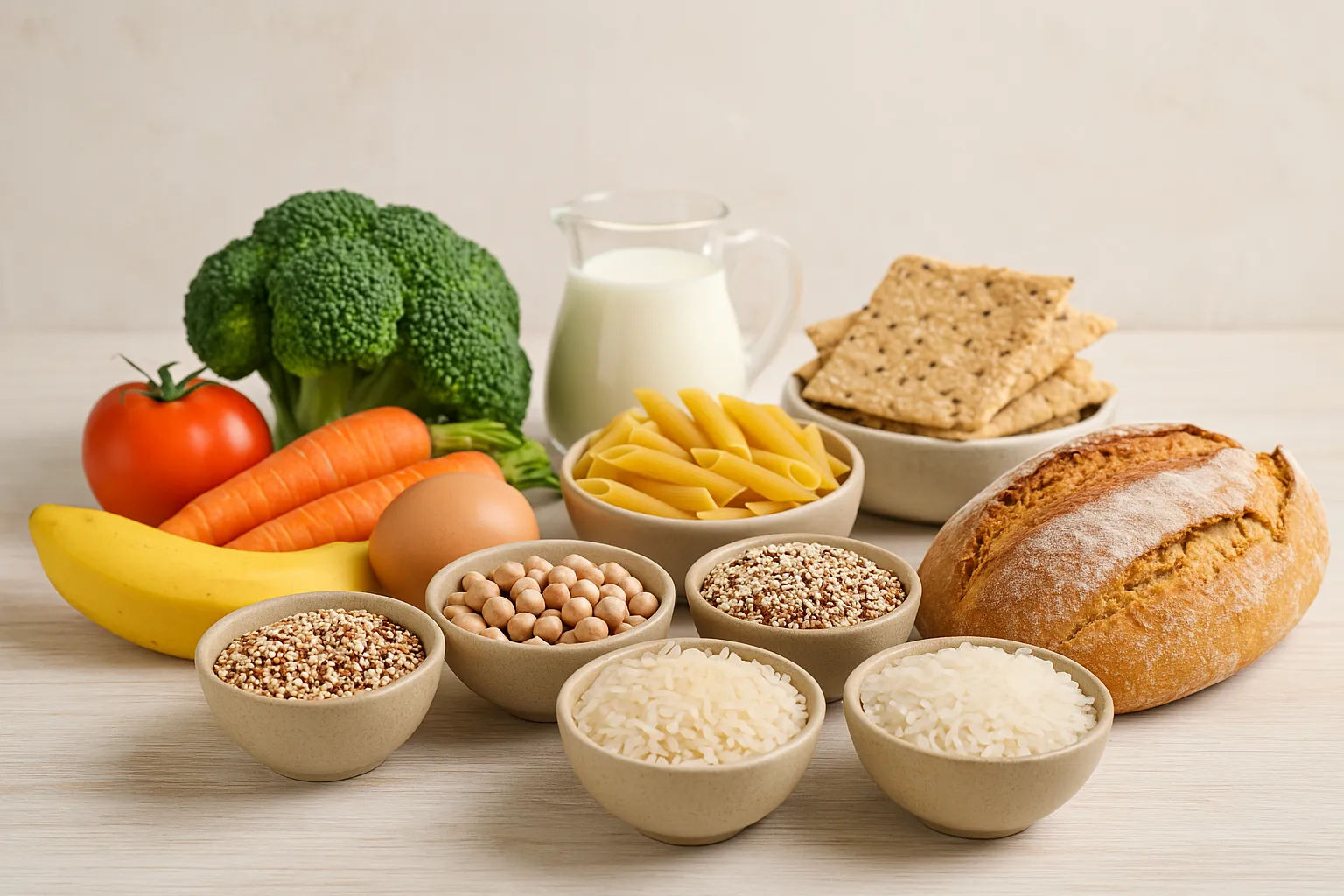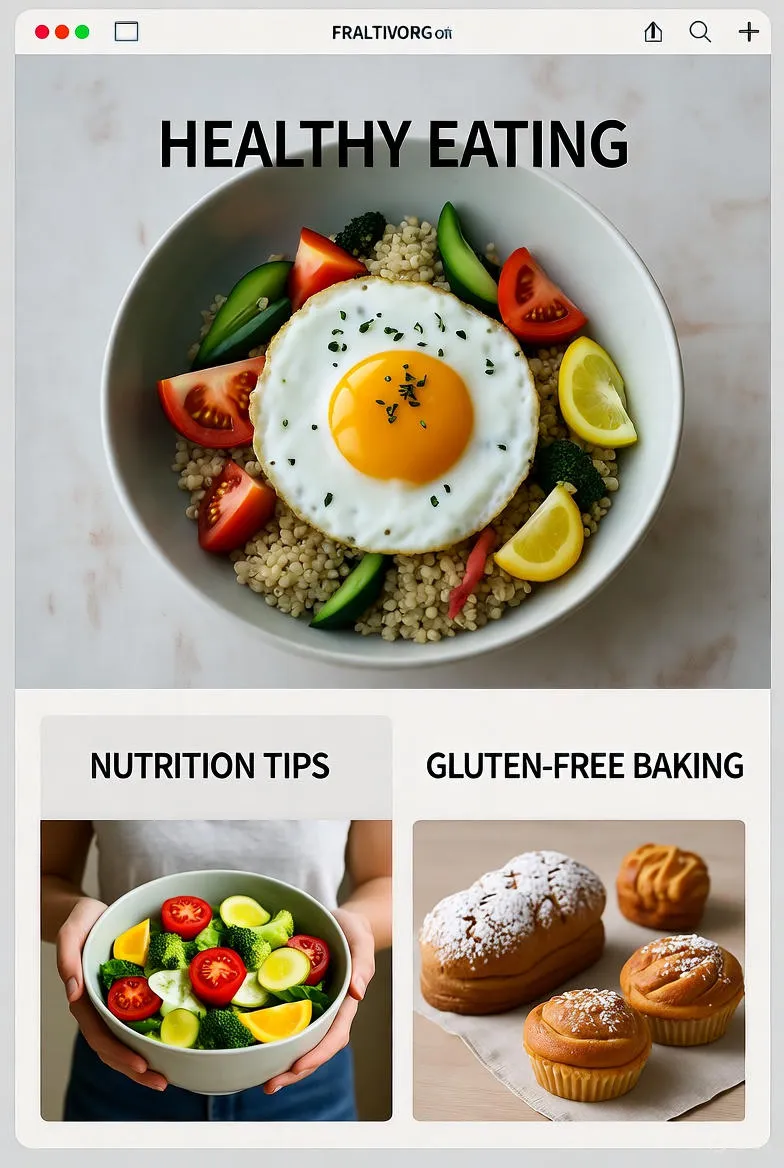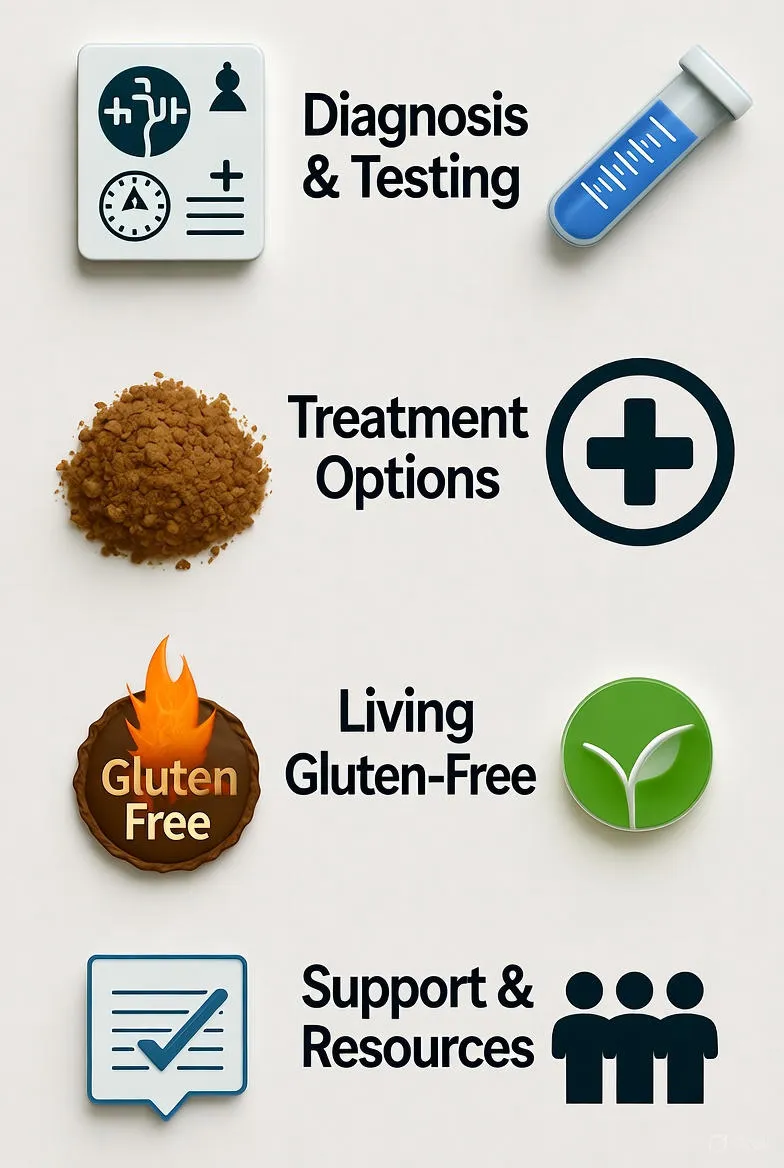Why Go Gluten Free Now: A Complete Guide to Healthier Living
Discover why now is the perfect time to go gluten-free. Learn about the health benefits, how to transition easily, common myths, and essential foods for a gluten-free lifestyle.

In recent years, the gluten-free lifestyle has transformed from a medical necessity for some into a conscious health choice for many. As awareness grows about how gluten affects the body, more people are asking themselves: Why go gluten free now? Whether you are managing a medical condition, striving for better digestion, or simply curious about how gluten influences your wellbeing, understanding the benefits and challenges of a gluten-free diet is essential. This comprehensive guide explores what it means to go gluten-free, why it matters today, and how to make the transition smoothly.
What Is Gluten?
Gluten is a naturally occurring protein found in wheat, barley, rye, and their derivatives. It provides elasticity to dough and gives bread its chewy texture. However, while harmless for many, gluten can trigger severe reactions in certain individuals. People with celiac disease, non-celiac gluten sensitivity, or wheat allergies must avoid gluten entirely to maintain their health.
Why Go Gluten Free Now?
There are multiple reasons why more people are embracing gluten-free living in 2025 than ever before. Let’s explore the most compelling ones.
1. Rising Awareness of Gluten Intolerance
Medical professionals have become increasingly adept at diagnosing gluten-related disorders. Conditions like celiac disease were once underdiagnosed, but advances in testing have revealed that millions of people suffer from gluten sensitivity without realizing it. Going gluten-free can relieve chronic bloating, fatigue, headaches, and even joint pain for those sensitive to gluten.
2. Improved Digestive Health
Many individuals experience noticeable digestive improvements after removing gluten. Gluten can cause inflammation in the gut for sensitive individuals, leading to discomfort, irregular bowel movements, and nutrient malabsorption. A gluten-free diet helps restore balance, reduce bloating, and support a healthier microbiome.
3. Better Energy Levels and Mental Clarity
When gluten causes inflammation or immune reactions, fatigue often follows. People who go gluten-free often report more stable energy levels and sharper focus. This is sometimes referred to as overcoming the “gluten fog.” By minimizing digestive stress, the body can channel energy toward daily tasks, workouts, and creativity.
4. Skin and Immune Benefits
Gluten sensitivity doesn’t stop at the digestive system. For some, it can manifest as skin issues such as eczema, psoriasis, or acne. By removing gluten, inflammation throughout the body may decrease, leading to clearer, healthier skin. Additionally, reducing gluten can support a stronger immune system, as chronic inflammation is known to weaken immunity over time.
5. Access to More Gluten-Free Products Than Ever
Ten years ago, adopting a gluten-free diet often meant sacrificing convenience. Today, the market is rich with gluten-free alternatives—from breads and pastas to snacks and sauces. Supermarkets and restaurants have embraced gluten-free options, making it easier to enjoy a diverse diet without compromising taste or social experiences.
How to Transition to a Gluten-Free Lifestyle
Adopting a gluten-free diet requires mindfulness and education. Below are steps to make your transition smoother and more sustainable:
- Start with whole foods: Focus on naturally gluten-free options like fruits, vegetables, lean proteins, eggs, nuts, seeds, and gluten-free grains such as rice, quinoa, and buckwheat.
- Read labels carefully: Gluten can hide in sauces, dressings, and processed foods. Learn to identify wheat derivatives like malt, spelt, triticale, and barley extract.
- Avoid cross-contamination: Use separate cooking utensils, toasters, and cutting boards if sharing a kitchen with gluten consumers.
- Plan your meals: Preparation helps you avoid temptation and ensures balanced nutrition.
- Consult a dietitian: Professional guidance helps maintain nutrient balance, especially for newcomers to gluten-free eating.
Common Myths About Going Gluten-Free
Despite its popularity, the gluten-free movement is often surrounded by misconceptions. Let’s address a few:
Myth 1: Gluten-Free Means Healthier for Everyone
Not necessarily. Gluten-free products can still be high in sugar, fat, or additives. The key is choosing whole, nutrient-rich foods over processed alternatives.
Myth 2: Going Gluten-Free Causes Weight Loss Automatically
Weight loss is possible if the diet encourages healthier choices, but gluten-free doesn’t inherently mean low-calorie. Balanced nutrition and mindful eating remain crucial.
Myth 3: Gluten-Free Eating Is Complicated
It might seem overwhelming at first, but modern food labeling and online resources make it much easier. Once you learn which foods to avoid, gluten-free living becomes second nature.
Essential Gluten-Free Foods
Building a gluten-free pantry is easier than you think. Here are staple foods that fit perfectly into your new lifestyle:
- Fresh fruits and vegetables
- Beans, lentils, and chickpeas
- Quinoa, millet, amaranth, and rice
- Lean meats, fish, and eggs
- Gluten-free oats (certified)
- Dairy and plant-based milk
- Nuts, seeds, and nut butters
Challenges and How to Overcome Them
Going gluten-free can feel restrictive at first. Dining out, traveling, and social gatherings may require extra attention. However, preparation is key. Research restaurants in advance, communicate with staff about your dietary needs, and carry snacks when necessary. Support groups and online communities can also provide guidance and encouragement during your transition.
The Long-Term Health Impact
For individuals with gluten sensitivity or celiac disease, long-term adherence to a gluten-free diet can drastically improve quality of life. Symptoms like chronic pain, fatigue, and anemia often fade away. Even for those without diagnosed intolerance, reducing gluten can promote mindful eating, improve digestion, and inspire a focus on cleaner nutrition overall.
Conclusion: The Time to Go Gluten-Free Is Now
With growing awareness, improved food options, and stronger scientific understanding, there has never been a better time to explore a gluten-free lifestyle. Whether motivated by health, comfort, or curiosity, the decision to go gluten-free empowers you to take control of your wellbeing. By embracing whole, natural foods and avoiding unnecessary additives, you’ll not only feel better but also cultivate a deeper appreciation for what truly nourishes your body.
Going gluten-free isn’t just a trend—it’s a transformative step toward mindful and conscious living.


